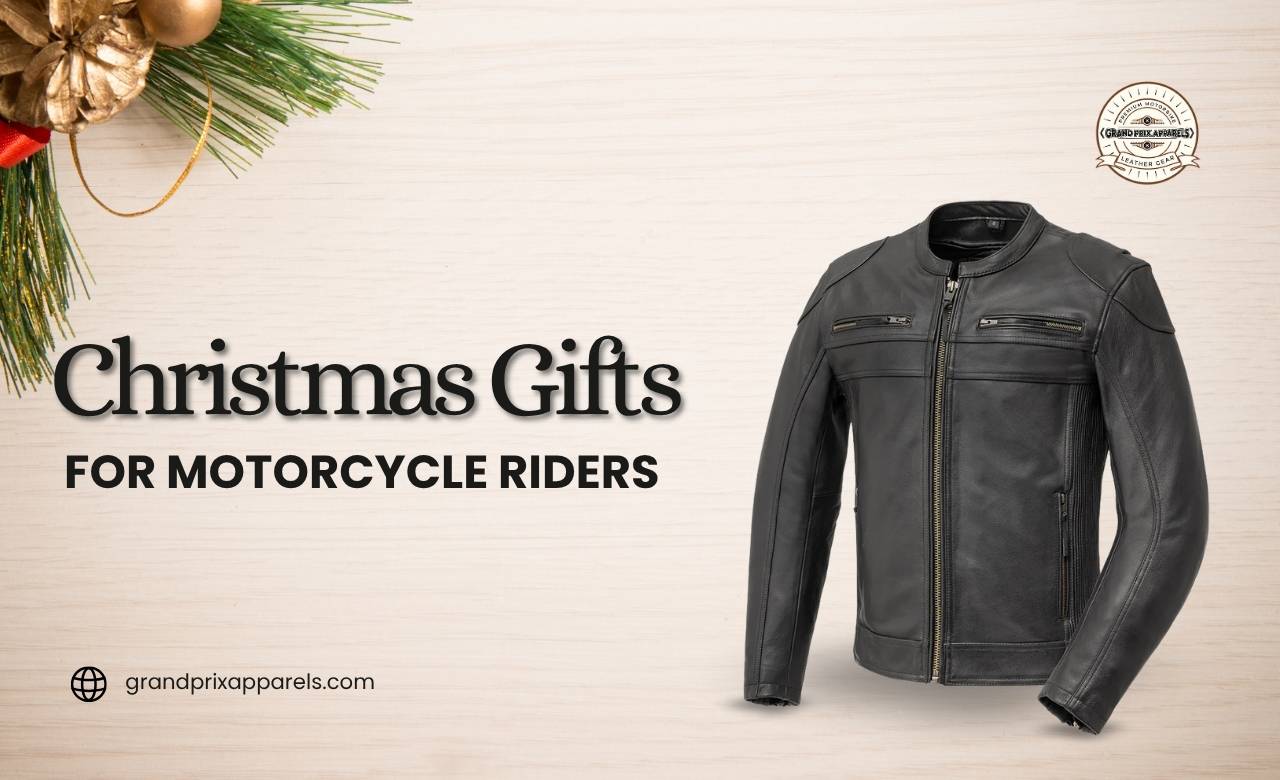
10 Christmas Gifts for Motorcycle Riders in 2025
Motorcycle riders live for the road, and Christmas is the perfect time to celebrate their passion. A well-chosen gift can add comfort, style, and convenience
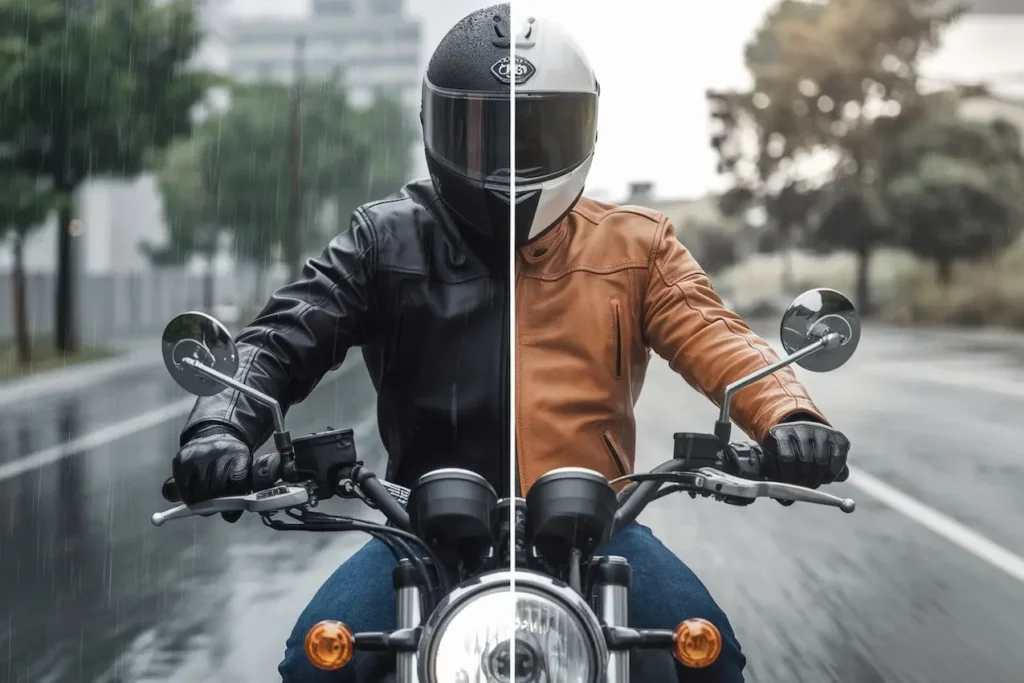
Motorcycle leather jackets are a staple for riders, combining style, protection, and functionality. But when choosing between waterproof and non-waterproof options, the decision can feel daunting. Whether you’re cruising on a sunny day or caught in an unexpected rainstorm, knowing the differences between these two types of jackets can greatly impact your riding experience.
Let’s break down everything you need to know to make an informed decision between waterproof vs non-waterproof motorcycle leather jackets.
| Feature | Waterproof Leather Jacket | Non-Waterproof Leather Jacket |
|---|---|---|
| Weather Resistance | Provides protection against rain and moisture | Not suitable for wet conditions, absorbs water |
| Durability | Longer-lasting in varying weather conditions | Requires more maintenance, especially after exposure to moisture |
| Breathability | May have limited breathability due to waterproof layers | More breathable and comfortable in warm, dry weather |
| Weight | Heavier due to waterproof membranes and layers | Lighter, with a more natural feel |
| Maintenance | Requires reapplication of waterproof treatments over time | Needs regular conditioning to prevent cracking |
| Cost | Typically more expensive | More affordable, depending on the brand and style |
Motorcycle leather jackets have been around for decades, serving as an essential piece of gear for riders. Initially, these jackets were designed for their protective qualities. However, over time, they’ve evolved to combine both safety and style.
The first leather jackets, specifically made for motorcyclists, appeared in the early 20th century. Initially used by military personnel, leather was favored for its durability and resistance to abrasions. Post-World War II, motorcyclists began adopting leather jackets for safety and style on the open road.
Leather remains the top choice for motorcyclists because of its durability, natural breathability, and sleek look. Unlike synthetic materials, leather adapts to your body over time, providing a customized fit while offering significant protection from road rash in the event of an accident.
When it comes to waterproof motorcycle leather jackets, riders need protection from rain and harsh weather without compromising on comfort or style.
Most waterproof leather jackets are crafted from treated leather or a combination of leather with waterproof membranes such as Gore-Tex or other hydrophobic coatings. The aim is to retain leather’s natural durability while adding a layer of water resistance.
Waterproofing involves applying a specialized coating to the jacket or integrating water-resistant fabrics within the lining. This ensures that water slides off rather than penetrating the material, keeping the rider dry in light to moderate rain. However, no leather jacket is entirely impervious to prolonged exposure to rain, so understanding limitations is crucial.
Non-waterproof leather jackets, while not ideal for wet weather, still serve a purpose for riders, especially in dry conditions.
Typically made from untreated leather, non-waterproof jackets offer a more natural look and feel. These jackets focus on breathability and comfort, making them perfect for sunny rides and moderate weather conditions.
Without water resistance, non-waterproof jackets are best for dry, arid climates. If exposed to moisture, they can become heavy and uncomfortable, with water potentially damaging the leather over time. Regular care, such as conditioning the leather, is essential to maintain its quality.
Every rider has unique needs, so understanding the benefits and drawbacks of waterproof jackets can help you decide.
| Type of Jacket | Pros | Cons |
|---|---|---|
| Waterproof Leather Jacket | – Protection from rain and moisture- Durable- Versatile for various weather conditions | – Heavier- More expensive- Can be less breathable |
| Non-Waterproof Leather Jacket | – Lighter and more breathable- Comfortable in dry weather- Affordable | – Not suitable for rain- Requires more care- Shorter lifespan in wet conditions |
On the other hand, non-waterproof leather jackets have their own set of benefits and drawbacks that make them an appealing option for specific riders.
Durability and maintenance are crucial considerations when choosing between waterproof and non-waterproof jackets.
| Maintenance Task | Waterproof Leather Jacket | Non-Waterproof Leather Jacket |
|---|---|---|
| Cleaning | Use a damp cloth; avoid harsh chemicals | Use a leather cleaner and conditioner regularly |
| Conditioning | Occasionally, especially after exposure to rain | Frequent conditioning needed to maintain softness and durability |
| Waterproofing Treatment | Reapply waterproofing spray or treatment periodically | Not necessary, but leather protector can be applied to improve water resistance |
| Drying After Exposure to Moisture | Air dry naturally, avoid direct heat | Air dry and condition after exposure to water |
| Storage | Store in a cool, dry place, avoid folding | Store in a dry place, avoid moisture buildup |
Waterproof jackets tend to last longer in varying weather conditions due to their protective coatings. In contrast, non-waterproof jackets are susceptible to damage from moisture and require more frequent conditioning and care.
While waterproof jackets also require care, especially in maintaining their water resistance, non-waterproof jackets demand more attention. Regular conditioning, drying techniques, and protection against excessive moisture are essential for non-waterproof jackets to maintain their integrity over time.
Comfort is a top priority for most riders, and this varies significantly between waterproof and non-waterproof jackets.
Many waterproof jackets come with ventilation systems to help improve breathability during warmer rides. Mesh linings or strategically placed vents can make a big difference in reducing sweat build-up under the jacket.
Non-waterproof leather jackets, in general, are more comfortable in dry weather, as they are naturally lighter and more breathable. The absence of a waterproof layer allows for better air circulation, making these jackets a more comfortable choice for warm-weather riders.
Motorcycle leather jackets are a statement piece, and aesthetics matter when making a choice between waterproof and non-waterproof options.
Modern waterproof jackets are available in a variety of styles, from sleek and minimalistic to bold and rugged. These jackets often come with reinforced seams, stylish linings, and a balance between function and form.
For those who prioritize classic looks, non-waterproof jackets often appeal more. The untreated leather offers a more traditional appearance that can develop a patina over time, adding to its character and appeal.
Understanding the weather conditions where each type of jacket excels is critical for making the right choice.
Waterproof leather jackets are best suited for riders who frequently encounter rain, unpredictable weather, or cooler temperatures. They offer more protection against the elements, ensuring that you’re dry and comfortable during your ride.
Non-waterproof jackets are perfect for dry, sunny weather. Their lightweight and breathable construction make them ideal for warm, summer rides or regions with little rainfall.
Pricing is often a deciding factor, and there are significant differences in the cost of waterproof versus non-waterproof jackets.
Several factors affect the price of a motorcycle jacket, including the quality of leather, added features such as waterproofing, and brand reputation. Waterproof jackets tend to be more expensive due to the additional materials and treatments required to make them weather-resistant.
While waterproof jackets are more expensive upfront, they can be more cost-effective in the long run for riders who frequently face bad weather. However, non-waterproof jackets are a better option for those looking for a lower initial investment and who primarily ride in dry conditions.
The production and treatment of leather, especially waterproof varieties, can have an environmental footprint.
Some manufacturers are exploring more sustainable waterproofing options, such as vegetable-tanned leather or water-based treatments. These methods reduce the environmental impact without sacrificing the jacket’s water-resistant properties.
Non-waterproof jackets, particularly those made from sustainably sourced leather, can be more environmentally friendly. However, they still require regular care and conditioning products that can contain chemicals.
Beyond style and comfort, the primary function of any motorcycle jacket is to offer protection.
Waterproof jackets often incorporate additional protective features like padding or armor. The layering involved in creating a waterproof jacket also adds an extra barrier, which can be beneficial in terms of protection.
Non-waterproof jackets, while generally lighter, can still offer excellent protection. Many include built-in armor at key points like the elbows, shoulders, and back, making them a safe choice for daily riding.
There are numerous brands offering both waterproof and non-waterproof motorcycle jackets.
Some of the leading brands include Rev’It!, Alpinestars, and Dainese. These companies specialize in creating waterproof leather jackets that combine functionality, style, and durability.
For non-waterproof jackets, brands like Schott NYC, Belstaff, and Roland Sands Design offer some of the best options. These jackets are known for their classic appeal and timeless designs.
When choosing between a waterproof or non-waterproof jacket, consider your riding habits, the weather in your region, and your personal style preferences.
At the end of the day, it comes down to personal preference. Some riders value style over functionality, while others need maximum protection from the elements.
Yes, you can use leather waterproofing sprays and treatments to improve water resistance in non-waterproof jackets, but the level of protection won’t match that of a factory-treated waterproof jacket.
Generally, yes. The additional materials and treatments required to make a jacket waterproof increase the production cost, which is reflected in the price.
Regular cleaning, conditioning, and occasional reapplication of waterproof treatments help extend the life of a waterproof leather jacket. Be sure to follow the manufacturer’s care instructions.
Yes, both waterproof and non-waterproof jackets can offer similar levels of protection. It depends on the quality of the leather and the presence of added armor or padding.
Non-waterproof jackets tend to be more breathable, as they don’t have the additional layers required for waterproofing, making them a better choice for hot weather.
If you ride mainly in dry conditions, a non-waterproof jacket might be a more practical and cost-effective choice. However, if you occasionally encounter rain, a waterproof option could be beneficial.
Choosing between waterproof and non-waterproof motorcycle leather jackets depends on a variety of factors, including weather, budget, and personal preference. Waterproof jackets provide excellent protection against the elements, while non-waterproof jackets excel in comfort and style. Ultimately, understanding your specific needs will help you make the best decision.

Motorcycle riders live for the road, and Christmas is the perfect time to celebrate their passion. A well-chosen gift can add comfort, style, and convenience
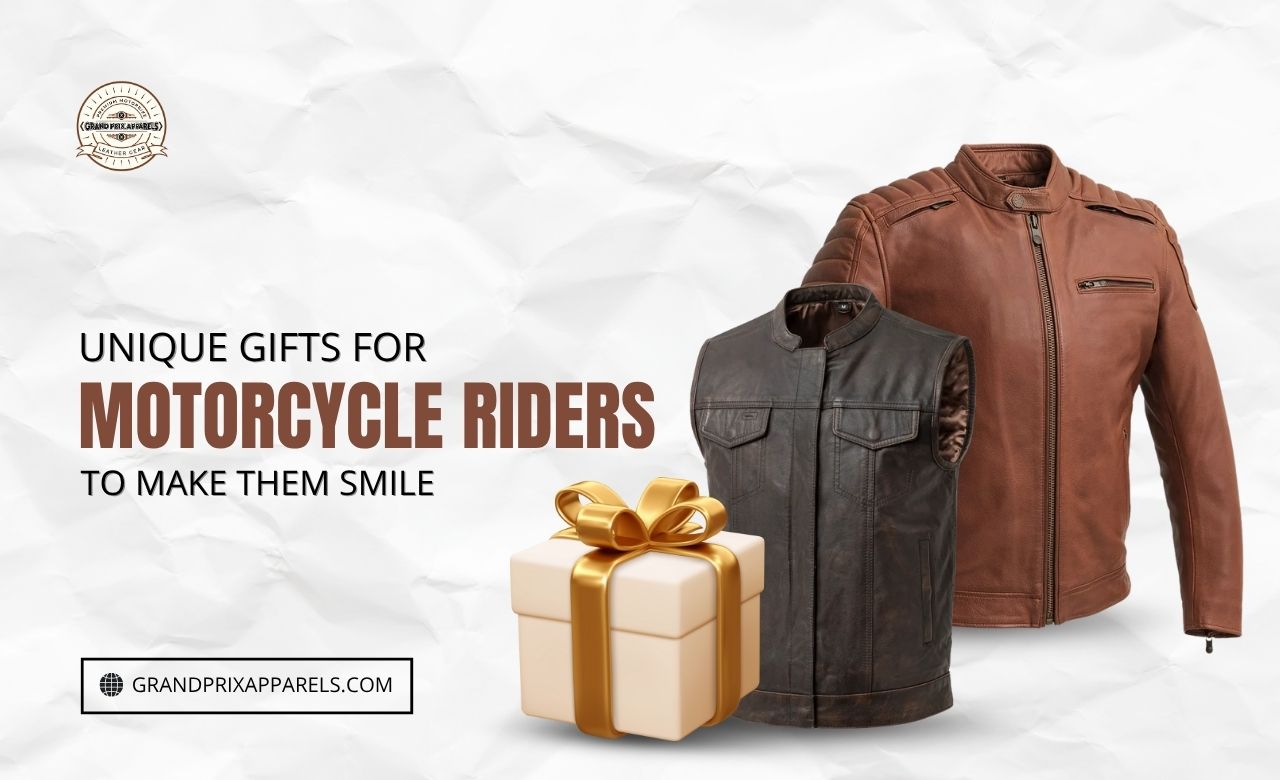
Motorcycle riders appreciate gifts that resonate with their passion, add value to their rides, and offer something distinctive. The right pick strikes a balance between
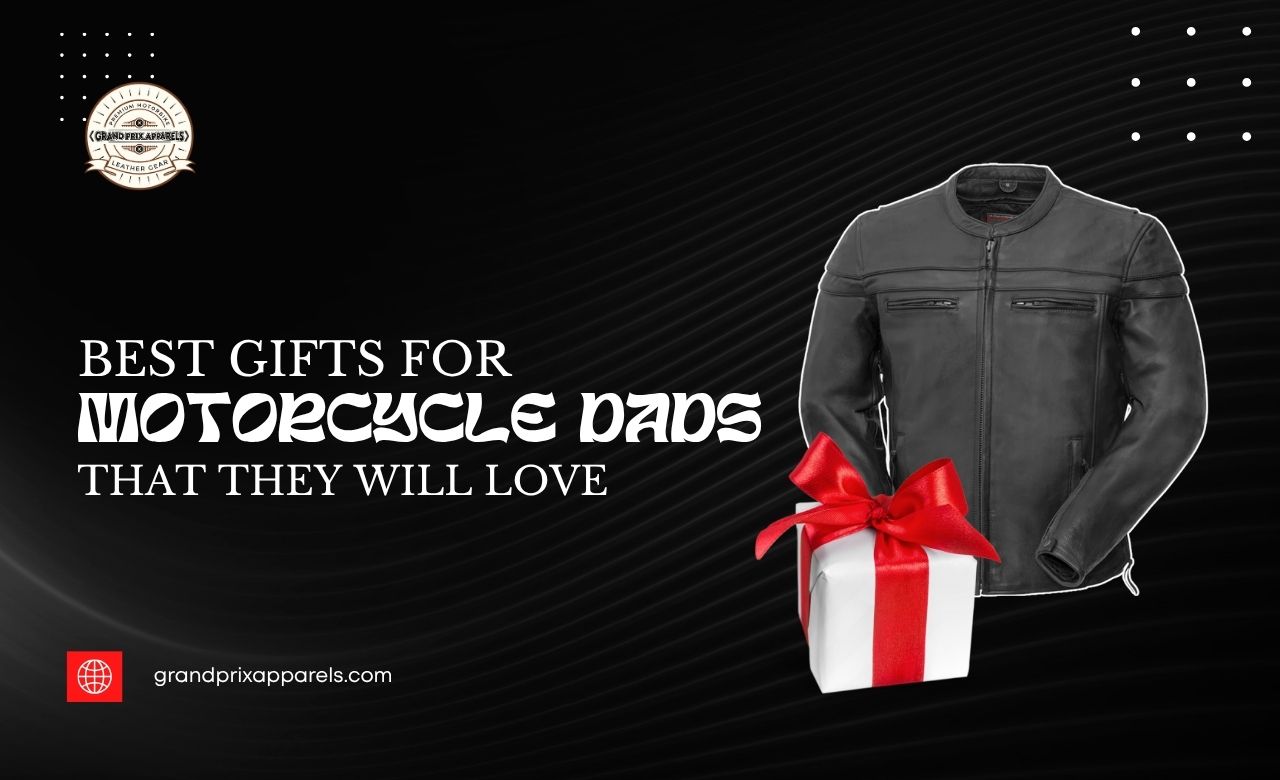
Motorcycle dads are passionate riders. They thrive on the open road, love the sound of the engine, and enjoy the thrill of every ride. If
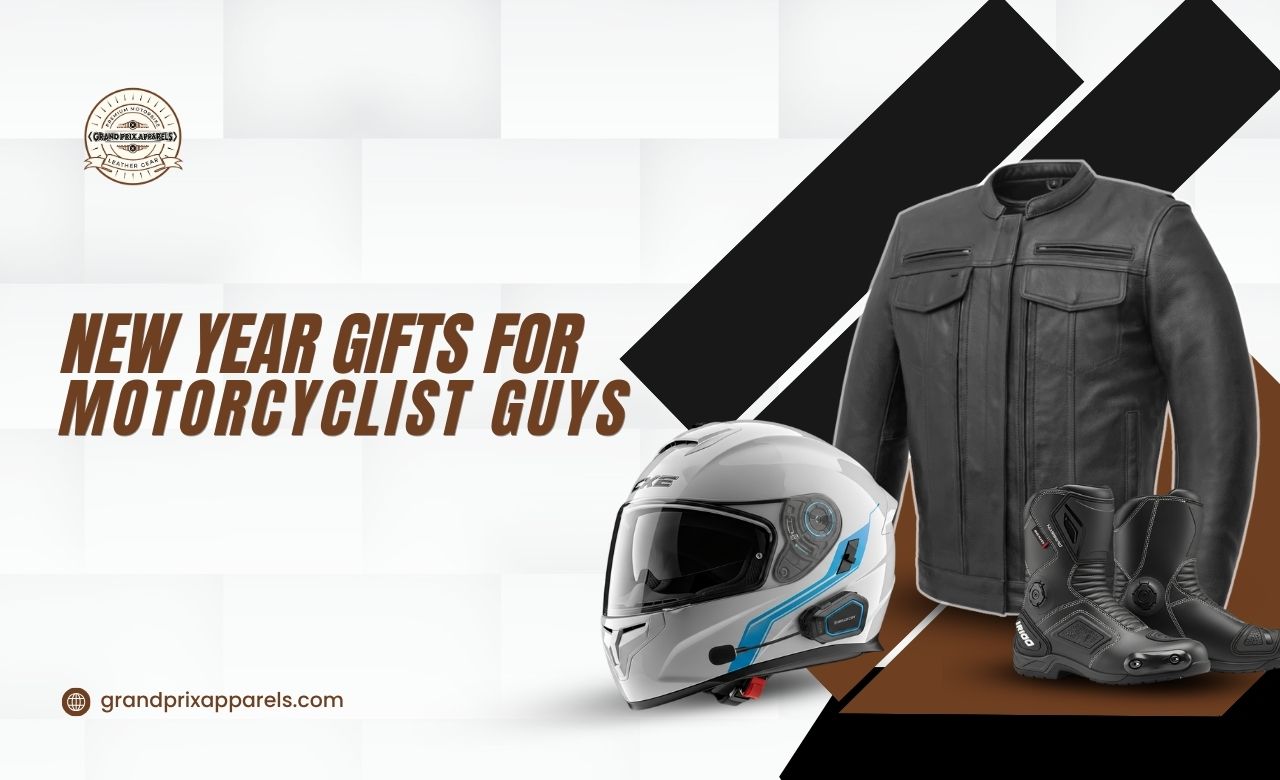
The New Year is the perfect time to surprise the biker in your life with a gift that blends excitement, purpose, and lasting value. Riders
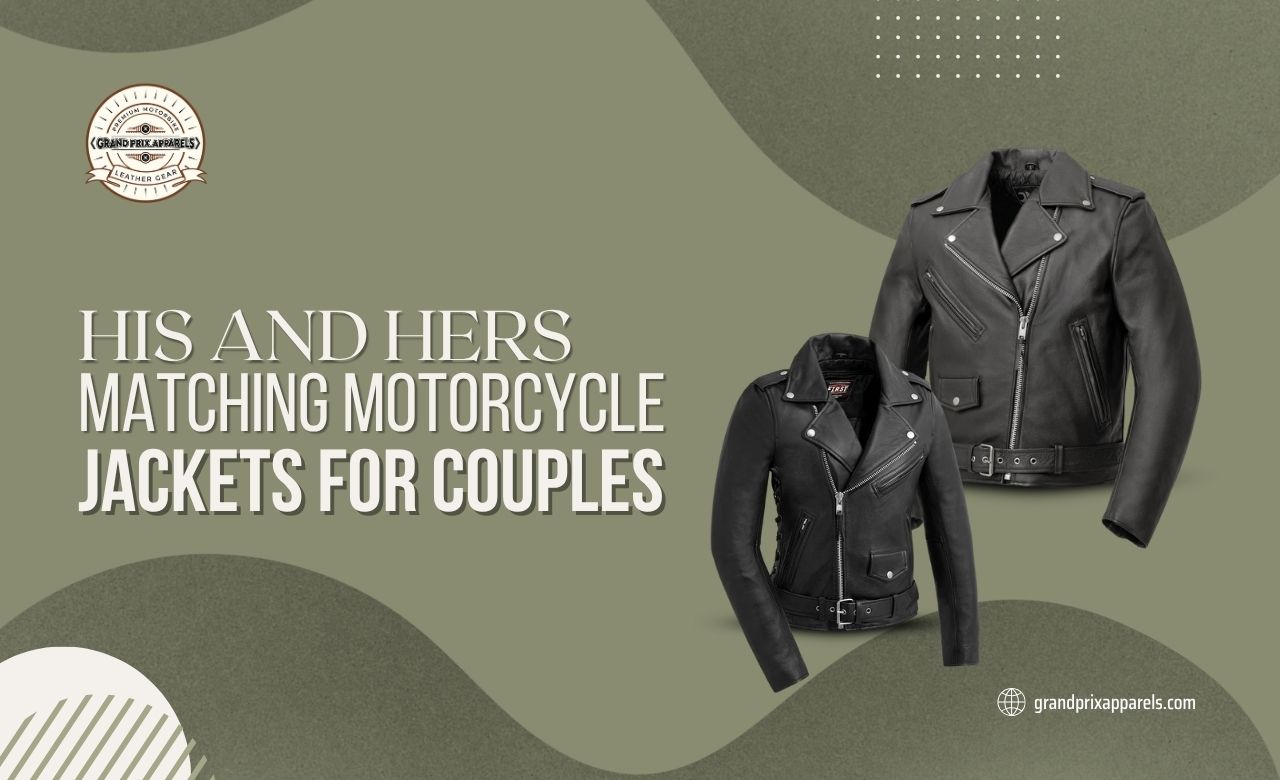
Riding together is more than just a hobby; it’s a way to bond, explore, and create memories on the open road. Matching motorcycle jackets are
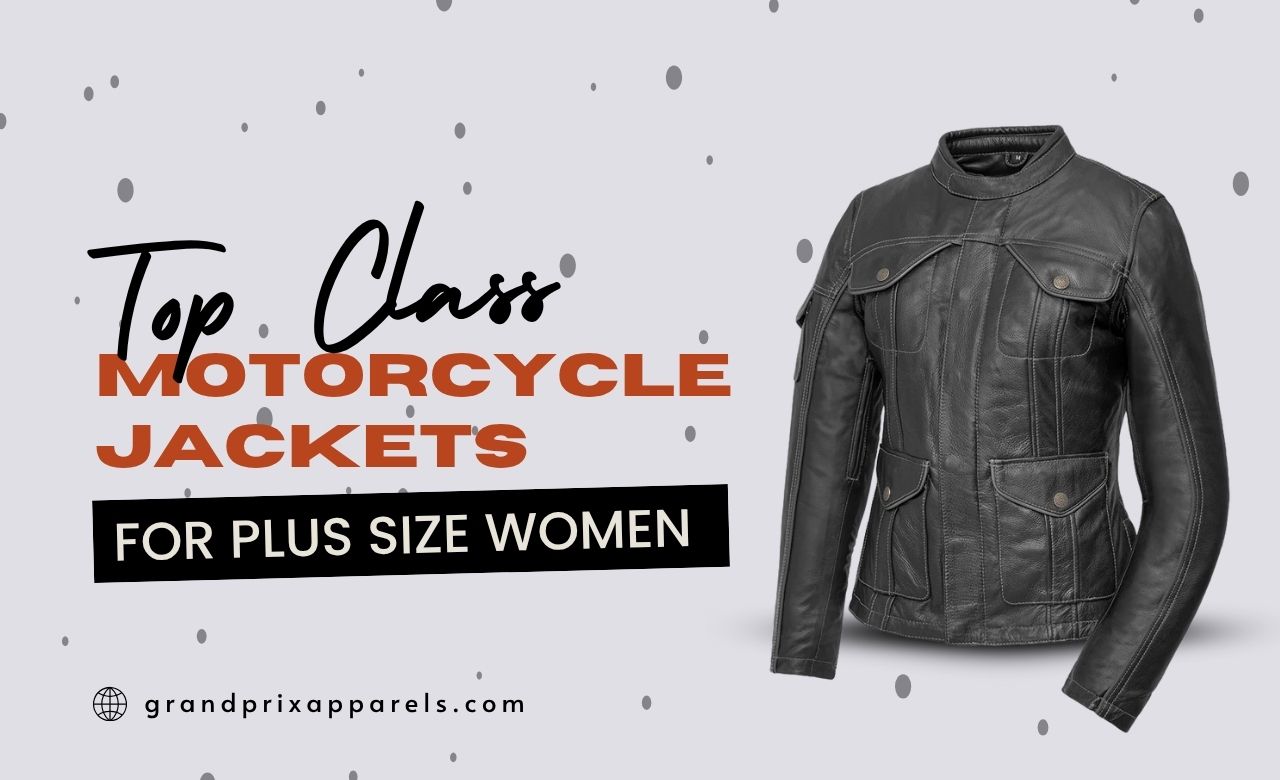
Every rider deserves gear that fits well, looks great, and feels comfortable, no matter the size. For plus-size women riders, finding the perfect motorcycle jacket
70 Pitman Ave, Fords, New Jersey, US
info[at]grandprixapparels.com
custom[at]grandprixapparels.com

Proin ullamcorper pretium orci donec necscele risqueleoam massa dolor imper dietnec consequata congue idsem maecenas malesuada faucibus finibus.
Uluwatu Jimbaran ST, 1919 - Bali, Indonesia
+62 212-345-321
deva@mail.com